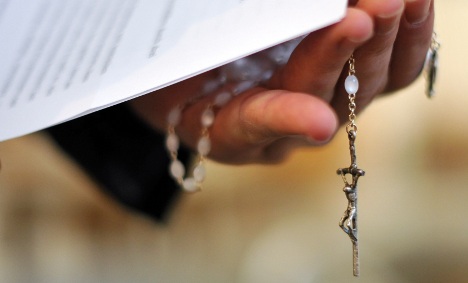“We see that we Jesuits must give a signal to the victims,” Germany’s provincial superior Stefan Kiechle said in an interview with daily Süddeutsche Zeitung.
While it has not been finalised, the sum would likely be in the “four-figure area,” and discussions have focused on offering a one-time payment of €5,000, he said.
An independent commission would determine who was eligible to receive the money, which would not come from tithes or donations to the order.
“We will have to modify our lifestyle,” he told the paper.
In January a massive Church sex abuse scandal erupted in Germany, with hundreds of victims from Catholic schools and institutions – many of them Jesuit – coming forward after years of silence. So far some 200 victims have been counted.
Now the perpetrators are responsible for reparations, Kiechle said.
“But they are sometimes unreasonable, have disappeared, are sick, or dead – and then we as an order must take on the responsibility where abuse is proved but no longer litigable,” he said, adding that in the end the order was at fault.
Spokesperson for Church abuse victims’ group Eckiger Tisch, Matthias Katsch, said the gesture from the Jesuits was positive, but that a sum of €5,000 was inappropriate and that a payment of €54,000 would not be too much, he told the paper. The group plans to meet with Jesuit leaders in Berlin on Saturday.
Kiechle said that some victims would inevitably be disappointed with the payment, but that it was important to make a symbolic gesture.
“Symbolic means that the gesture we offer is painful for us,” he said. “But it remains small and fragmented, as a sign of our helplessness in the face of the suffering.”



 Please whitelist us to continue reading.
Please whitelist us to continue reading.
Member comments